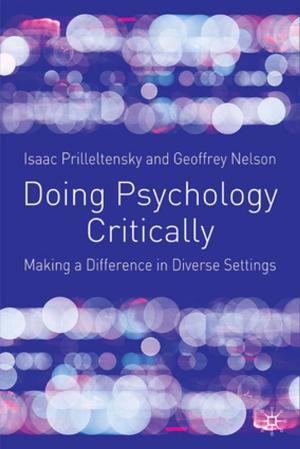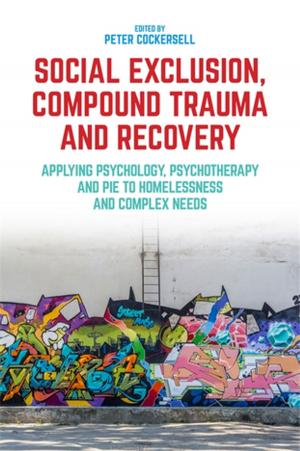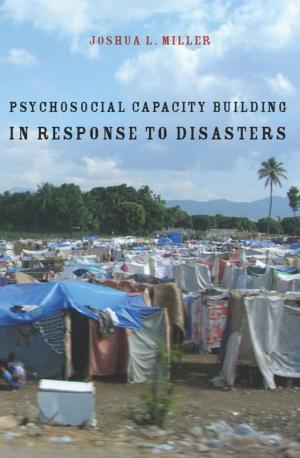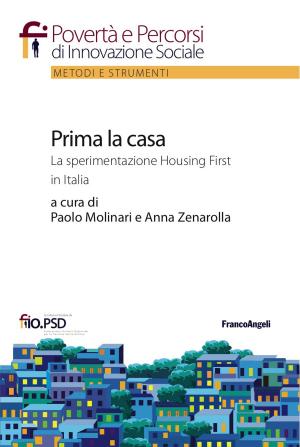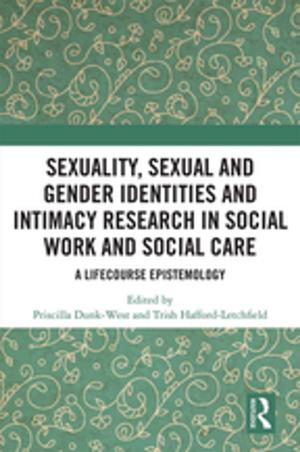The Meaning of Home- Voices from the Streets
Nonfiction, Social & Cultural Studies, Social Science, Social Work| Author: | Anne Kidd | ISBN: | 9781310328732 |
| Publisher: | Anne Kidd | Publication: | May 6, 2016 |
| Imprint: | Smashwords Edition | Language: | English |
| Author: | Anne Kidd |
| ISBN: | 9781310328732 |
| Publisher: | Anne Kidd |
| Publication: | May 6, 2016 |
| Imprint: | Smashwords Edition |
| Language: | English |
Written by an outreach worker in a homeless support program in Melbourne, Australia, The Meaning of Home- Voices from the Streets, describes the experience of supporting nine people who have no home, and the efforts of finding long-term housing for them. It also explores the meaning of home from various perspectives and challenges our preconceived ideas on what having a home might mean.
Taking us deep into the worlds of Ben, Brad, Barry, Cassie, Mandy, Sally, John, Gary and Robbie, Anne Kidd provides insight into life on the streets. Her clients’ experiences are both tragic and traumatic, yet Kidd’s compassionate and sensitive narrative highlights the resilience, courage and forbearance of these disadvantaged people. By describing the circumstances that led each individual to a life of homelessness, Kidd debunks the myths about the stereotypical ‘homeless person’ and reminds us that the reasons for homelessness are multiple, unpredictable and varied.
The book also challenges our assumptions of what ‘home’ means. Home is not simply a structure with four walls and a roof; it can also mean having a secure sense of self, a place of safety and comfort, a connection to something meaningful, and the familiarity of community.
The book is divided into four parts. In the first section, Kidd describes the homeless support program in which she worked, providing a socio/political context to ‘housing first’ programs in Australia. Homelessness is defined and the core premise of the book – that a homeless person is foremost an individual with their own story to tell – is established.
The second part elaborates on the notion of home as defined by Ken Kraybill Director of Training Centre for Social Innovation Seattle, Washington: the self (‘the first home’), the actual dwelling (‘the second home’), and the wider community (‘the third home’). Kidd uses the stories of Ben, Brad, Barry, Cassie, Gary, Mandy, John, Robbie and Sally to tease out and exemplify these definitions.
The third section introduces the idea that home can be defined as a connection to something meaningful. Through describing the day-to-day experiences of her clients, Kidd reminds us that home can mean positive relationships with family and making sense of the past.
Part four describes the ending of the program due to loss of funding. Kidd reflects on the personal impact of working with the homeless and the lessons learned: patience, compassion, holding faith. It brings together the various meanings of home and concludes by celebrating the indomitability of the human spirit.
Written by an outreach worker in a homeless support program in Melbourne, Australia, The Meaning of Home- Voices from the Streets, describes the experience of supporting nine people who have no home, and the efforts of finding long-term housing for them. It also explores the meaning of home from various perspectives and challenges our preconceived ideas on what having a home might mean.
Taking us deep into the worlds of Ben, Brad, Barry, Cassie, Mandy, Sally, John, Gary and Robbie, Anne Kidd provides insight into life on the streets. Her clients’ experiences are both tragic and traumatic, yet Kidd’s compassionate and sensitive narrative highlights the resilience, courage and forbearance of these disadvantaged people. By describing the circumstances that led each individual to a life of homelessness, Kidd debunks the myths about the stereotypical ‘homeless person’ and reminds us that the reasons for homelessness are multiple, unpredictable and varied.
The book also challenges our assumptions of what ‘home’ means. Home is not simply a structure with four walls and a roof; it can also mean having a secure sense of self, a place of safety and comfort, a connection to something meaningful, and the familiarity of community.
The book is divided into four parts. In the first section, Kidd describes the homeless support program in which she worked, providing a socio/political context to ‘housing first’ programs in Australia. Homelessness is defined and the core premise of the book – that a homeless person is foremost an individual with their own story to tell – is established.
The second part elaborates on the notion of home as defined by Ken Kraybill Director of Training Centre for Social Innovation Seattle, Washington: the self (‘the first home’), the actual dwelling (‘the second home’), and the wider community (‘the third home’). Kidd uses the stories of Ben, Brad, Barry, Cassie, Gary, Mandy, John, Robbie and Sally to tease out and exemplify these definitions.
The third section introduces the idea that home can be defined as a connection to something meaningful. Through describing the day-to-day experiences of her clients, Kidd reminds us that home can mean positive relationships with family and making sense of the past.
Part four describes the ending of the program due to loss of funding. Kidd reflects on the personal impact of working with the homeless and the lessons learned: patience, compassion, holding faith. It brings together the various meanings of home and concludes by celebrating the indomitability of the human spirit.

